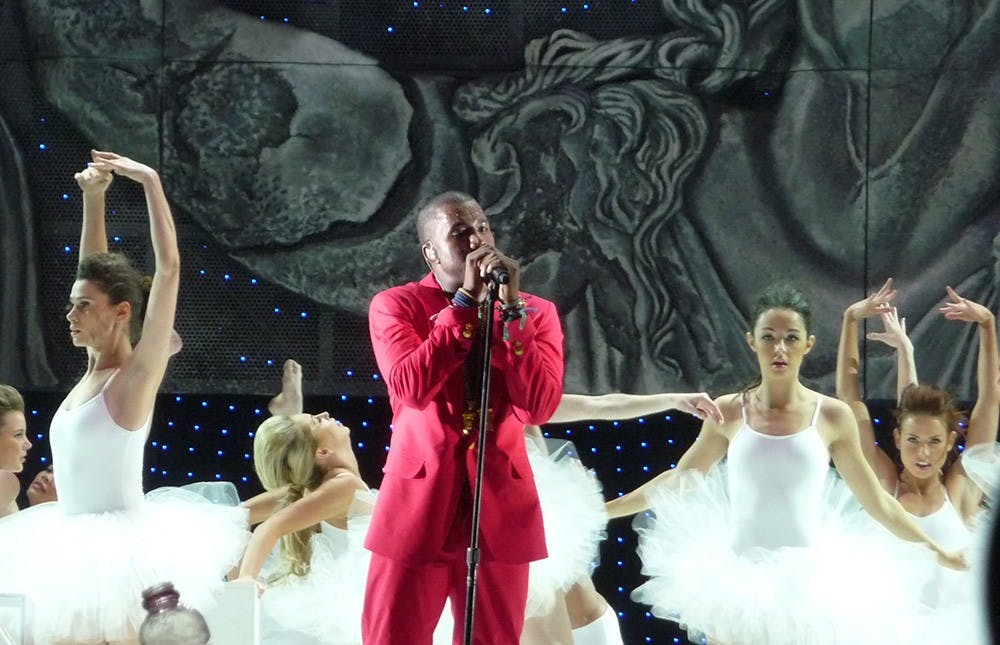University fliers for the Gertrude Murrel duPont Fund claim that students can attend cultural events in Richmond and abroad — “on us!” However, that may depend on your definition of "culture."
Gertrude duPont is a graduate of Westhampton College in 1931 who was involved in the classics department during her time as a student. The duPont Fund, established in 1951, was designed as a way to allow students to enjoy the arts without the burden of an expensive price tag.
“She really had an affinity for the arts,” Vittoria Tripp, Budget Coordinator for the Center of Student Involvement, said. Tripp is responsible for approving or denying student requests for ticket reimbursement through the fund. Typically events that are approved fall under the category of the fine arts like ballet, orchestral performances or gallery exhibitions.
In the past, students have used the fund to attend events such as the French Film Festival, “Swan Lake” and “Wicked.” In the last year alone students have seen performances of the “Lion King” on three different continents. But when it comes to culture closer to home, Tripp doesn’t always say, “hakuna matata.”
“I haven’t seen a rapper yet that qualifies,” Alison Keller, Director of the Center for Student Involvement, said. “It doesn’t qualify as an artist that fulfills the cultural experience that would be identified.”
In contrast, the university’s email-forum, SpiderBytes, has already announced more than ten hip-hop performances on campus this Fall under its list of cultural events. Many of these performances were hosted by the Modlin Center for the Arts and the Carole Weinstein International Center.
While the Center for Student Involvement’s website offers several examples of events that fit its definition of culture, the legal document that endows the fund to the university outlines that the money should be used “to attend events with musical, theatrical, dance, or artistic interest.” High culture like opera, the symphony, ballet and gallery exhibitions have made the cut, but less illustrious forms of culture such as hip-hop seem to be excluded.
“It’s really just kind of at my discretion now,” Tripp said. “It’s usually very black and white, and it’s not something that we have to think about a whole lot… I can’t think of a time when we’ve really had to gut-check ourselves. It’s like Chance the Rapper, or like, Wicked."
Professor Bertram Ashe, who specializes in African American Literature and Culture, feels that a gut-check may be in order.
“I also wonder if there isn’t, on the part of this office, a kind of fundamental misunderstanding of what cultural enrichment actually entails,” Ashe said. “Viewing American culture from a ‘high culture versus low culture, symphony versus hip-hop’ perspective shortchanges the multiplicity of levels of cultural engagement that are in play when a thoughtful student attends a hip-hop show.”
He went on to suggest that University of Richmond students are capable of engaging with and benefiting from the cultural milieu of hip-hop and everything that it entails: racially, culturally, and socioeconomically. Keller maintains that this is not what duPont had in mind when setting up the fund.
“We have to give priority to the foundation of the donor’s wishes,” Keller said. “The donor wanted students to be able to go to the theater, the opera, the orchestra — to the arts, to museums — in ways that they did not have the ability to go because of the costs… and so this was a fund that was set up for that purpose.”
Enjoy what you're reading?
Signup for our newsletter
Although the decision to deny funding for African American hip-hop may be second nature, other forms of pop-culture aren’t as frowned upon.
In the past when students have applied to attend rap concerts the consensus in the Center for Student Involvement was, “Absolutely not,” according to Keller. But on Feb. 25 when the Modlin Center hosted Gill Landry of Old Crow Medicine Show, the band responsible for popularizing the song “Wagon Wheel,” Keller was not sure whether that event would have been covered under the duPont Fund.
Likewise, Tripp did not know if a Spanish hip-hop concert would be immediately dismissed.
Ashe was not so hesitant when it came to approving these events, including those involving rap. He maintained that hip-hop concerts can be beneficial to the overall education of students, and should be funded without question.
For now, the Center for Student Involvement will continue to disagree. "When you give a lot of money for something to make it happen, that’s what happens," Keller said. "[We] just have to work with it the way it is, because that's what they asked for."
Contact managing operations manager Adam Gibson at adam.gibson@richmond.edu
Support independent student media
You can make a tax-deductible donation by clicking the button below, which takes you to our secure PayPal account. The page is set up to receive contributions in whatever amount you designate. We look forward to using the money we raise to further our mission of providing honest and accurate information to students, faculty, staff, alumni and others in the general public.
Donate Now



